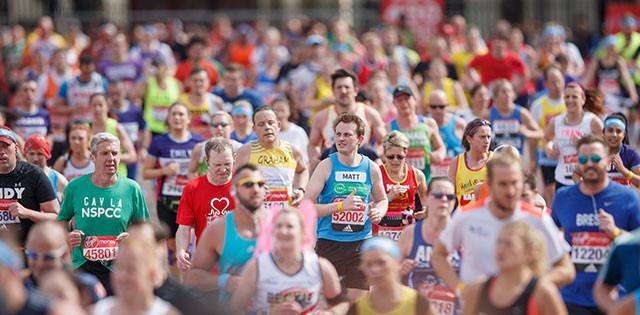How to train and recover properly with diabetes

Having diabetes should not be a barrier to taking part in physical activity, which is why Simplyhealth has chosen Diabetes UK as the official charity partner of the Simplyhealth Great Run Series 2019; encouraging people to become more active to help manage the condition or reduce the risk of developing Type 2 diabetes.
Failure to manage diabetes well, however, can lead to devastating health complications. Here, Emma Elvin, Senior Clinical Advisorat Diabetes UK, explains the key things to factor into your training and recovery if you are living with Type 2 diabetes.
Emma Elvin, Senior Clinical Advisorat Diabetes UK
For people living with Type 2 diabetes, there are a few things to think about when it comes to ensuring your exercise routine is as safe as it can be.
Test your blood glucose levels before and after exercise
Not everyone with Type 2 diabetes has to test their blood glucose levels at home but for those that do use home blood glucose monitors, it’s really useful to get into the habit of testing around periods of exercise and physical activities such as running.
This is to get an idea of what effect exercise has on their blood glucose levels. They can test before and after to see if it has any impact and to what extent it has an effect.
Factor in the medication you’re taking
People with Type 2 diabetes who are managing their condition through the use of insulin or certain medications such as sulphonylureas, are at risk of their blood glucose levels becoming too low (hypo). For some people, exercise may also lower blood glucose so it’s worthwhile knowing the impact exercise can have when taking these medications, as it may mean the doses need to be altered to lower that risk. Always speak to your diabetes healthcare team before making any changes to medications.
Safety first: speak to a medical professional
If running is a new activity for you then you should think about having a conversation with a health professional, such as a diabetes doctor or nurse to see if you have any existing complications which should be considered before taking up activities such as running. This will give you an opportunity to make any necessary changes to the way you manage your diabetes, especially if you are going to be doing intensive levels of running.
Check your feet
People with all types of diabetes are at risk of certain complications, if their condition is not managed effectively. Everyone with diabetes should check their feet every day for any changes that may have occurred, such as colour changes, swelling, pain, cuts or bruises, build-up of hard skin, or anything unusual. This is because they are much more likely to develop problems with their feet,such as neuropathy – damage to their nerves. If someone has sensory neuropathy they may not notice a blister and it can quickly develop into something more serious such as an ulcer which can be hard to treat.
As well as looking after their feet, it’s important to manage your blood glucose levels, blood pressure and blood fats too.
Regular check-ups are essential
Make sure you are attending all your diabetes reviewsso you get all the health checks you need. Doing regular exercise is a really important way to help manage your condition better. Being aware of the possible diabetes complications of diabetes is important as it will ensure you are getting all the help you need to manage the condition.
Hydration and refuelare key
Make sure you are well hydrated before a race. You will likely need to sip on fluids while running too. After a race make sure to drink some water, but also try to include some electrolytes and salt too (this will help with rehydration). Rehydrating well will help replenish the fluid you have lost as a result of sweating.
A balanced meal after the race can help you to recover. A balanced post-race meal should include wholegrain carbohydrates and lean protein (to aid muscle repair and replenish their glycogenstores) as well as some vegetables or salad. Although you might choose different foods during a race, once it’s completed try to get back to making healthier food choices to help manage your diabetes.
Simplyhealth has partnered with Diabetes UK for the 2019 Simplyhealth Great Run Series. For expert tips and training advice visit www.greatrun.org/training-simplyhealth
